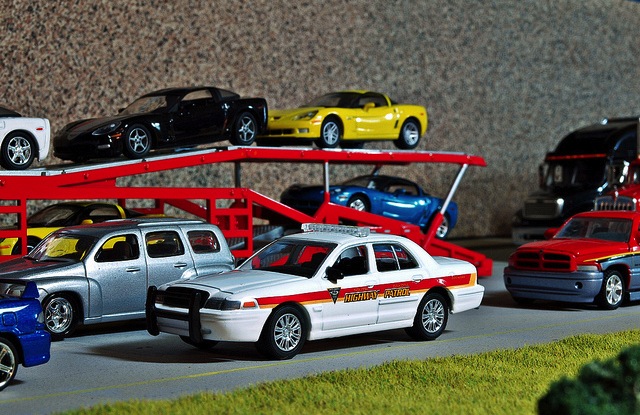
Highways are very much an every-driver-for-themselves kind of place. While we hope the majority of people will do whatever they can to avoid accidents and not take silly risks, ultimately every individual has to watch out for their own hides.
But what if getting on the highway also meant joining a wireless mesh network consisting of all the cars around you? Cars could become a self-organizing entity, avoiding collisions and minimizing traffic congestion. The cars themselves would be smart enough to cooperate with each other.
"You can imagine in the future, you could enter the highway, mesh with five or six other vehicles around you and you caravan together," said Dan Rabinovitsj, senior VP of chipmaker Qualcomm Atheros's networking business unit. "You're essentially making sure you're not just keeping proper distance from the front and back, which a number of vehicles do today, but literally in 360 degrees. And of course passing along messages: there's a policeman up ahead, there's an accident up ahead, or there's a stoplight. All of these things are starting to intersect."
Rabinovitsj was speaking today as part of a Consumer Electronics Show panel on next-generation wireless technologies. The self-organizing cars he envisions aren't something on the market today, and there's no public timeline for when it might come to market. But cars, like everything else, are getting smarter, and the technology that could make what Rabinovitsj described possible is already being developed.
The 802.11p standard allowing data exchange between moving vehicles in the 5.9GHz band and a Department of Transportation project called dedicated short-range communications (DSRC) both play a role, Rabinovitsj said. "There's a huge amount of work that needs to be done, and anything to do with vehicle safety will require years of testing and such," he said. "But there's a considerable amount of work getting done right now. And all of the chipsets that we've developed have this enhanced DSRC capability, so we're basically ready to go. We can enable that functionality."
It will be complicated, noted Fanny Mlinarsky, founder and CTO of wireless testing firm octoScope. "DSRC itself is not a mesh. It's a broadcast, so it only reaches vehicles within range," she said. "Meshing requires a lot more sophistication. There's a routing aspect to it, relaying messages to other nodes. DSRC is much simpler."
The CES panelists were speaking in speculative tones, but that doesn't mean car manufacturers aren't already working on this. About 18 months ago, Ford Motor Company CTO and VP of Research Paul Mascarenas described a project to build a mesh network for cars.
An August 2011 article by Kevin Fitchard on Connected Planet said Ford was exploring the idea of a "constantly morphing mobile mesh network that helped drivers avoid accidents, identify traffic jams miles before they encounter them, and even act as a relay point for Internet access."
"What Ford envisions, Mascarenas said, is a high-powered, heavily encrypted Wi-Fi that establishes point-to-point connections between cars within a half-mile radius, "Fitchard wrote. "Those connections could be used to communicate vital information between vehicles, either triggering alerts to the driver or interpreted by the vehicle’s computer. An intelligent car slamming on its brakes could communicate to all of the vehicles behind it that it’s coming to rapid halt, giving the driver that much more warning that he too needs to hit the brakes."
Mesh networking, in which each connected device can route traffic to other devices on the network, is a hot research topic for businesses, Rabinovitsj said. Connected cars may be just one of many interesting applications to be developed using mesh networks in the coming years.
"Mesh has become an extremely important part of the enterprise on the Wi-Fi side, and a lot of our customers are innovating around this," he said.
reader comments
51